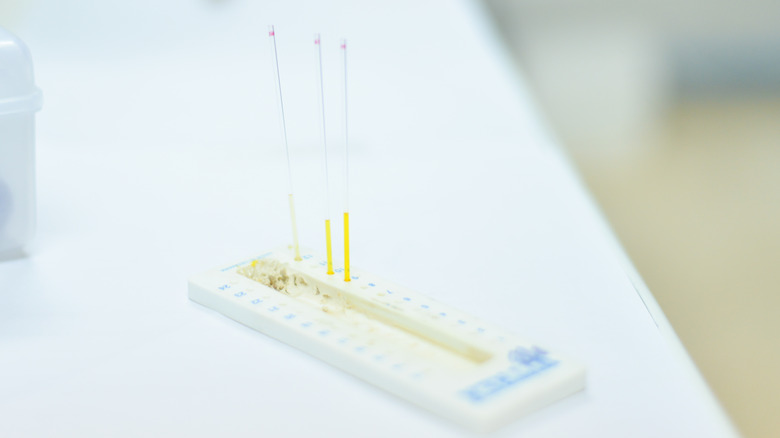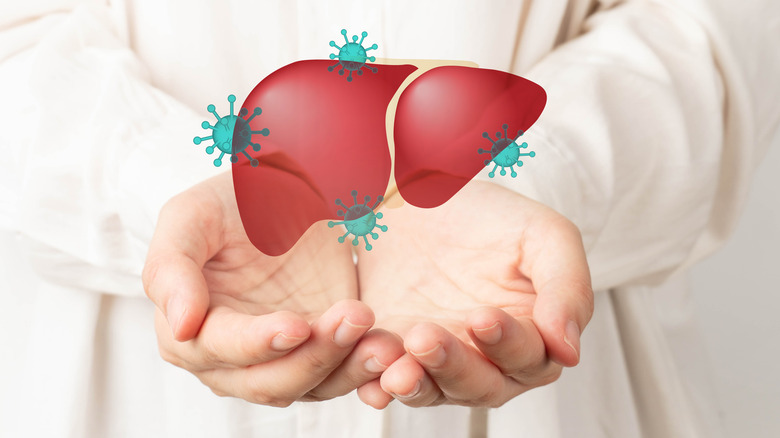What Does It Mean When Your Bilirubin Is High?
Bilirubin is a yellow-colored compound found in bile, a fluid produced by the liver that aids in digestion, according to the Cleveland Clinic. It is a waste product released when the body breaks down red blood cells. Most times, the liver is responsible for removing bilirubin, but if the liver doesn't function properly, you may get high bilirubin levels in your system.
Therefore, a bilirubin test is typically performed to check the levels of bilirubin in your blood (per Mayo Clinic). The test helps diagnose diseases that may be caused by elevated levels of this compound, such as jaundice or anemia. However, sometimes, doctors may suggest other tests alongside bilirubin examination to investigate other possible health conditions. For instance, a complete blood count could be useful in checking the entire blood profile. Similarly, a liver function test could help identify specific enzymes within the blood. Regardless of the testing route, with the right diagnosis, a doctor can help identify what is causing bilirubin to be high and the proper treatment to diminish the compound.
What do high levels of bilirubin indicate?
Bilirubin test results can be given in three forms: direct, indirect, or total (per the University of Rochester Medical Center). A doctor may recommend the total bilirubin test if they suspect a disease. If the bilirubin is ready to be eliminated from the body, it's called direct bilirubin result, while indirect means the bilirubin is a part of the blood composition. The normal total bilirubin range is 1.2 milligrams per deciliter (mg/dL) for adults, whereas 1 mg/dL is typical for those under 18 years, according to Mayo Clinic. On the other hand, direct bilirubin results are usually 0.3 mg/dL and indirect bilirubin is between 0.2 to 0.8 mg/dL (via the University of Rochester Medical Center). However, it's important to remember that these results may vary in each laboratory.
If you have high levels of bilirubin, the Cleveland Clinic warns that it might indicate an underlying problem with liver function. Additionally, scarring of the liver, also known as cirrhosis, or hepatitis may lead to slightly higher levels of this compound, per Mount Sinai. Test results may also be influenced by what you eat or drink before the test or the medications you take. Along with blood transfusions, high bilirubin may also be associated with blood disorders, like hemolytic anemia or erythroblastosis fetalis.

